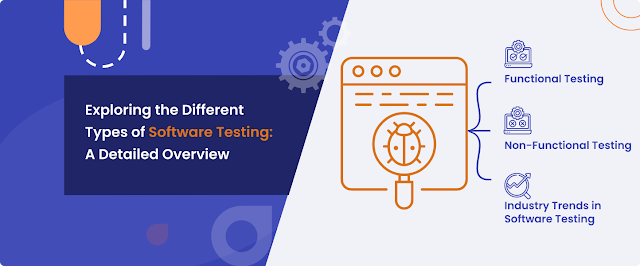Overview of Popular Scripting Languages Used in Test Automation
What is a Scripting Language?
A scripting language for test automation is a programming language commonly utilized in creating automated test scripts. These programming languages offer a wide range of libraries that can be tailored for test automation. Testers can utilize these resources to create scripts that can interact with applications and simulate user actions. This enables them to thoroughly evaluate the operation, performance, and various other aspects of software systems.
Many scripting languages are widely used for test automation because they are user-friendly, flexible, and have extensive libraries. Here are a few examples: Python, JavaScript, Java, Ruby, C#, and Groovy are all popular programming languages that developers often use for various projects. Each language has its unique features and advantages, making them suitable for different purposes. Whether you're interested in web development, data analysis, building mobile applications, or testing, there's a programming language that can meet your needs.
5+ Popular Scripting Languages for Test Automation
Java
Java continues to be a popular option for enterprise-level test automation due to its strong community support and well-established ecosystem. Java is a great option for large-scale projects because of its frameworks and tools, like JUnit and TestNG, as well as Selenium WebDriver. Java's support for multithreading simplifies cross-browser and parallel testing, enhancing efficiency and productivity.
Some of the widely used frameworks in the testing world are JUnit and TestNG.
Java benefits from a thriving developer community, which offers a plethora of resources, tutorials, and third-party test automation libraries.
Python
Python is widely regarded as a top choice for test automation. Python's straightforward syntax, which is both user-friendly and easy to grasp, has made it a popular choice among test engineers. It offers seamless integration with popular CI/CD tools such as Jenkins. Python makes testing across different browsers and operating systems simultaneously possible.
Some popular frameworks in the world of software testing include PyTest, Unit test, Behave, and Robot Framework.
The Python community offers extensive support, with an array of resources, documentation, and community-driven libraries available to assist with test automation endeavors. It benefits from free and easily accessible technical support from a vibrant community.
JavaScript
JavaScript is widely used in web development and has become an essential tool for test automation, allowing for smooth integration with web applications. JavaScript is a versatile language that can be utilized for server-side scripting with Node.js. This feature allows for efficient testing of both front-end and back-end applications.
Some popular frameworks in the technical blogosphere include Selenium WebDriverJS, Mocha, Jasmine, and Jest.
The JavaScript community is known for its vibrancy and constant evolution. It offers a diverse selection of libraries, frameworks, and test automation tools for developers to explore and utilize.
C#
C# is widely used in Microsoft-centric environments, especially for testing.NET applications. Our platform offers a wide range of testing frameworks, including NUnit and MSTest, to ensure the reliability and stability of your applications. Additionally, we provide powerful web testing tools like Selenium WebDriver to help you test your web applications with ease. C# is widely recognized for its robust typing capabilities and seamless integration with Visual Studio, making it a perfect choice for intricate test scenarios.
Frameworks that are widely used in the industry include NUnit and MSTest. The C# community offers a substantial amount of resources and support for test automation, despite not being as large as some other languages.
Ruby
Ruby is widely recognized for its simplicity and expressiveness, which has made it a favored option for test automation, especially in the realm of web development. When it comes to testing in Ruby, RSpec and Cucumber, along with Watir and Selenium WebDriver, make for a formidable combination. It is widely utilized in web development and provides robust testing frameworks and tools.
Some widely used frameworks include RSpec and Cucumber.
The Ruby community is highly regarded for its strong sense of collaboration and support. It offers a wide range of resources and libraries that are invaluable for test automation.
Groovy
A highly sought-after scripting language for test automation, renowned for its succinct syntax, robust capabilities, and effortless compatibility with Java. Groovy is a JVM-based language that seamlessly integrates with existing Java code, providing advantages to both languages. Groovy has a dynamic nature, allowing for flexible and easy-to-use typing features.
Frameworks that are widely used:Spock and Geb.
The Groovy community, while not as large as some others, is incredibly active and offers valuable resources and support for test automation.
In conclusion, there is a wide range of programming languages available for automating testing, each designed to meet various needs and preferences. These languages are highly favoured for automation testing due to their extensive support for various automation testing structures and a wide user base. If you're looking to dive into automation testing, there are several programming languages you can choose from.


Comments
Post a Comment